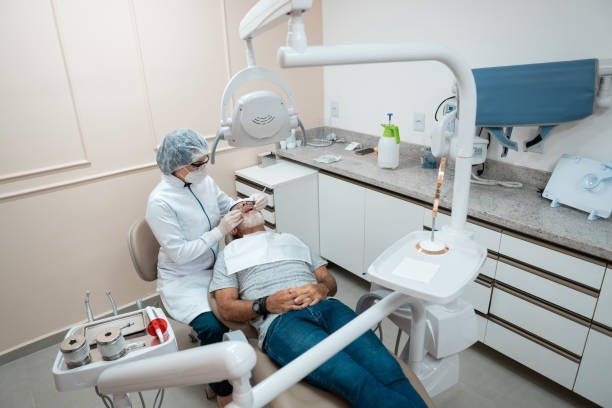The Keto Diet: Exploring Its Potential Benefits and Risks
Are you tired of trying various diets that promise incredible results but leave you unsatisfied and deprived? Well, one diet has gained significant popularity recently for its potential benefits in improving health and wellness. It’s called the keto diet, short for the ketogenic diet. This article delves into this low-carb, high-fat eating plan’s potential benefits and risks and explores how it can contribute to overall well-being.
Understanding the Keto Diet
The keto diet is a low-carb, high-fat diet that focuses on significantly reducing carbohydrate intake while increasing the consumption of healthy fats. By doing so, the body is forced to enter a metabolic state called ketosis, which primarily burns fat for fuel instead of carbohydrates. This shift in metabolism can lead to several potential benefits, such as weight loss, improved energy levels, and enhanced mental clarity.
The Potential Benefits of the Keto Diet
- Weight Loss: One of the primary reasons many individuals choose the keto diet is its potential for weight loss. The body utilizes stored fat as its primary energy source by restricting carbohydrates and increasing fat intake. This process can lead to effective weight loss, especially in the initial stages of the diet.
- Increased Energy: When the body relies on fat for fuel instead of carbohydrates, it can provide a more stable and consistent energy supply. Many individuals on the keto diet report experiencing increased energy levels throughout the day, reducing the energy crashes often associated with high-carbohydrate diets.
- Improved Mental Focus: The brain requires constant energy to function optimally. By providing a consistent energy source through ketones, the byproduct of fat metabolism, the keto diet may enhance mental clarity and focus.
- Better Blood Sugar Control: Carbohydrate intake significantly impacts blood sugar levels. By minimizing carbohydrate consumption, the keto diet may help regulate blood sugar levels and improve insulin sensitivity, making it a potential option for individuals with type 2 diabetes or those at risk of developing the condition.
- Reduced Inflammation: Some studies suggest that the keto diet may have anti-inflammatory effects, benefiting individuals with chronic inflammatory conditions such as arthritis or inflammatory bowel disease.
The Risks and Considerations of the Keto Diet
While the keto diet offers several potential benefits, it’s essential to consider the risks and drawbacks.
- Nutrient Deficiencies: Since the keto diet restricts certain food groups like fruits, whole grains, and legumes, it’s essential to ensure an adequate intake of essential nutrients. Careful meal planning, including various nutrient-rich foods, is necessary to avoid potential deficiencies.
- Keto Flu: When transitioning to a keto diet, some individuals experience what’s known as the “keto flu.” It’s a temporary phase characterized by fatigue, headaches, and irritability. These symptoms can be alleviated by staying hydrated, consuming enough electrolytes, and gradually reducing carbohydrate intake.
- Digestive Issues: The keto diet’s high-fat content can sometimes lead to digestive issues such as constipation or diarrhea. It’s crucial to prioritize fiber-rich foods and stay hydrated to maintain healthy digestion.
- Limited Food Choices: Following the keto diet may limit your food options, especially when dining out or attending social events. Sticking to the diet requires careful planning and adaptability in various situations.
The Keto Diet and Wellness Clinics
Considering the potential benefits and risks of the keto diet, it’s essential to consult with health and wellness clinics before embarking on any dietary change. Wellness clinics can provide expert guidance and support in incorporating the keto diet into your lifestyle safely and effectively. They can tailor the diet to your needs and help you address potential concerns or challenges.
The Keto Diet and Fast Recovery
In addition to the potential benefits of weight loss and improved energy levels, the keto diet may positively impact recovery and overall well-being. Wellness clinics recognize the role of nutrition in promoting fast recovery from various health conditions and injuries. The keto diet, focusing on nutrient-dense foods and metabolic adaptation, can be valuable in this process.
By reducing inflammation and supporting the body’s natural healing processes, the keto diet may contribute to faster recovery times. This is particularly relevant for recovering from injuries, surgeries, or chronic conditions. The keto diet can support cellular repair and regeneration by providing the body with a consistent energy supply through ketones.
Wellness clinics often employ a multidisciplinary approach, combining dietary interventions with other therapies and treatments to optimize recovery. They may work closely with nutritionists, physical therapists, and other healthcare professionals to create personalized treatment plans incorporating the keto diet and other modalities.
Addressing Anxiety and Keto Diet
Anxiety is a common mental health condition that can significantly impact an individual’s well-being and overall quality of life. When addressing anxiety, wellness clinics often have specialists, such as social anxiety doctors, who can provide the necessary support and guidance.
Social anxiety doctors specialize in helping individuals overcome social anxiety and related challenges. They understand the complex nature of anxiety disorders and can provide a comprehensive treatment plan that may include therapy, medication, and lifestyle modifications.
While the keto diet may not directly target anxiety, it can contribute to overall well-being, vital in managing anxiety symptoms. The diet’s potential benefits, such as improved energy levels, mental clarity, and stabilized blood sugar, can positively impact an individual’s mood and stress levels.
When seeking assistance for anxiety at wellness clinics, it’s essential to communicate openly with the social anxiety doctor about any dietary changes you’re considering, including the keto diet. They can provide insights into how diet may interact with your anxiety symptoms and offer guidance on incorporating the diet safely and effectively into your overall treatment plan.
In Conclusion
The keto diet has gained popularity for its potential benefits in promoting weight loss, increased energy, and improved mental focus. However, it’s essential to approach any dietary change with careful consideration and expert guidance, especially regarding your health and wellness. Consulting with health and wellness clinics can provide the necessary support and expertise to incorporate the keto diet safely and effectively into your lifestyle.
Remember, the keto diet may not be suitable for everyone, and it’s essential to consider individual factors, preferences, and any underlying health conditions before embarking on this eating plan. With the proper guidance and support, the keto diet can be a valuable tool for improving health and well-being.



